Filter by
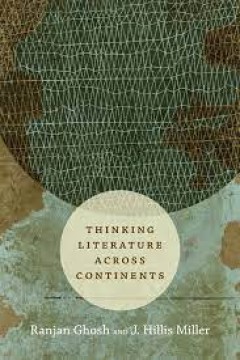
Thinking Literature across Continents
'Thinking Literature across Continents' finds Ranjan Ghosh and J. Hillis Miller—two thinkers from different continents, cultures, training, and critical perspectives—debating and reflecting upon what literature is and why it matters. Ghosh and Miller do not attempt to formulate a joint theory of literature; rather, they allow their different backgrounds and lively disagreements to stimulate…
- Edition
- -
- ISBN/ISSN
- 9780822373698
- Collation
- -
- Series Title
- -
- Call Number
- -

The Queen of American Agriculture A Biography of Virginia Claypool Meredith
Virginia Claypool Meredith's role in directly managing the affairs of a large and prosperous farm in east-central Indiana opened doors that were often closed to women in late nineteenth century America. Her status allowed her to campaign for the education of women, in general, and rural women, in particular. While striving to change society's expectations for women, she also gave voice to the i…
- Edition
- -
- ISBN/ISSN
- 9781557539274
- Collation
- -
- Series Title
- -
- Call Number
- -

Citizenship in Question Evidentiary Birthright and Statelessness
Citizenship is often assumed to be a clear-cut issue - either one has it or one does not. However, as the contributors to Citizenship in Question demonstrate, citizenship is not self-evident; it emerges from often obscure written records and is interpreted through ambiguous and dynamic laws. In case studies that analyze the legal barriers to citizenship rights in over twenty countries, the cont…
- Edition
- -
- ISBN/ISSN
- 9780822373483
- Collation
- -
- Series Title
- -
- Call Number
- -
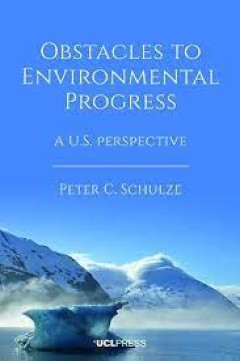
Obstacles to Environmental Progress A U.S. perspective
environment;policy;biology;earth sciences;United States;obstacles to progress;environmental policy;environmental law;environmental regulation;environmental science;environmental progress;environmental solutions;environmental justice;sustainability;uncertainty;decision processes;climate change;problem solving;unintended consequences;systems perspective;environmental monitoring;freedom and enviro…
- Edition
- -
- ISBN/ISSN
- 9781800082076
- Collation
- -
- Series Title
- -
- Call Number
- -
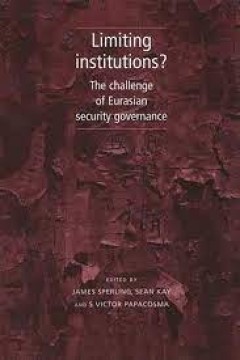
Limiting institutions?: The challenge of Eurasian security governance
Limiting Institutions examines the security threats in Eurasia and the role of institutions in the post-Cold War international environment. It looks at both the crucial aspect of foreign policy as well as a theoretical area of security studies and its impact in the former Soviet States including Russia, Belarus, Armenia, the Ukraine and Moldova. The first section addresses the important and var…
- Edition
- -
- ISBN/ISSN
- 9780719066047
- Collation
- -
- Series Title
- -
- Call Number
- -
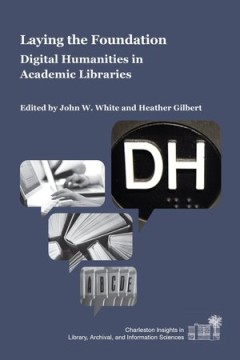
Laying the Foundation : Digital Humanities in Academic Libraries
Laying the Foundation: Digital Humanities in Academic Libraries examines the library's role in the development, implementation, and instruction of successful digital humanities projects. It pays special attention to the critical role of librarians in building sustainable programs. It also examines how libraries can support the use of digital scholarship tools and techniques in undergraduate edu…
- Edition
- -
- ISBN/ISSN
- 9781557537515
- Collation
- -
- Series Title
- Charleston Insights in Library, Archival, and Information Sciences
- Call Number
- 027.709 73 LAY
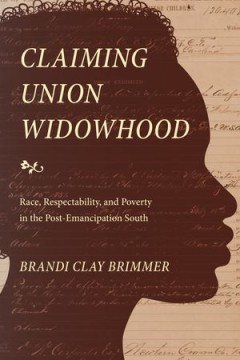
Claiming Union Widowhood Race, Respectability, and Poverty in the Post-Emanc…
In Claiming Union Widowhood, Brandi Clay Brimmer analyzes the US pension system from the perspective of poor black women during and after the Civil War. Reconstructing the grassroots pension network in New Bern, North Carolina, through a broad range of historical sources, she outlines how the mothers, wives, and widows of black Union soldiers struggled to claim pensions in the face of evidentia…
- Edition
- -
- ISBN/ISSN
- 9781478090403
- Collation
- -
- Series Title
- -
- Call Number
- -
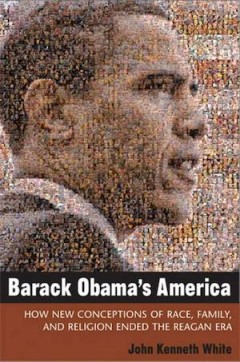
Barack Obama's America : How New Conceptions of Race, Family, and Religion En…
The election of Barack Obama to the presidency marked a conclusive end to the Reagan era, writes John Kenneth White in Barack Obama's America. Reagan symbolized a 1950s and 1960s America, largely white and suburban, with married couples and kids at home, who attended church more often than not. Obama's election marked a new era, the author writes. Whites will be a minority by 2042. Marriage is …
- Edition
- -
- ISBN/ISSN
- 978-0-472-02179-6
- Collation
- -
- Series Title
- -
- Call Number
- 306.850 973 090 5 WHI b
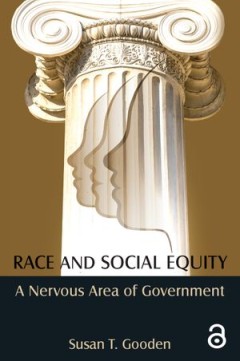
Race and Social Equity : A Nervous Area of Government
In this compelling book the author contends that social equity--specifically racial equity--is a nervous area of government. Over the course of history, this nervousness has stifled many individuals and organizations, thus leading to an inability to seriously advance the reduction of racial inequities in government. The author asserts that until this nervousness is effectively managed, public a…
- Edition
- -
- ISBN/ISSN
- 9781317461456
- Collation
- -
- Series Title
- -
- Call Number
- 303.372 097 3 GOO r
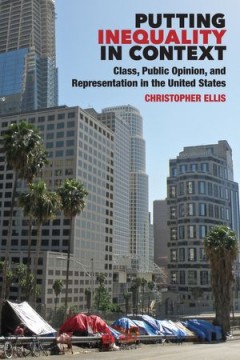
Putting Inequality in Context : Class, Public Opinion, and Representation in …
Rising income inequality is highlighted as one of the largest challenges facing the United States, affecting civic participation and political representation. Although the wealthy often can and do exert more political influence, this is not always the case. To fix political inequality, it is important to understand exactly how class divisions manifest themselves in political outcomes, and what …
- Edition
- -
- ISBN/ISSN
- 9780472130498
- Collation
- -
- Series Title
- -
- Call Number
- 306.209 73 ELL p
 Computer Science, Information & General Works
Computer Science, Information & General Works  Philosophy & Psychology
Philosophy & Psychology  Religion
Religion  Social Sciences
Social Sciences  Language
Language  Pure Science
Pure Science  Applied Sciences
Applied Sciences  Art & Recreation
Art & Recreation  Literature
Literature  History & Geography
History & Geography